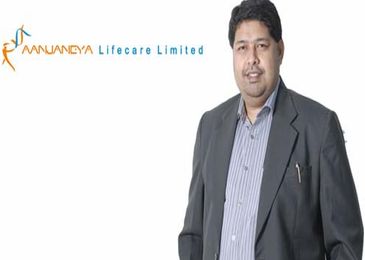Aanjaneya Lifecare to launch "Operation Hunger Free Mission"
March 27, 2013 | Wednesday | News | By BioSpectrum Bureau
Aanjaneya Lifecare to launch "Operation Hunger Free Mission"
Dr Kannan Vishwanath, Founder Chairperson of Aanjaneya Lifecare Foundation
Mumbai-based Aanjaneya Lifecare, the vertically integrated pharmaceutical company with manufacturing and marketing capabilities in APIs (Active Pharmaceutical Ingredients) with focus on anti-malarial, and finished dosage forms (FDFs) catering to various therapeutic segments has undertaken the task of addressing the social issues in its CSR initiatives to help increase the larger cause, that of, avoid classroom hunger,- increase school enrolment, increase school attendance, improve socialization among castes, address malnutrition & empower women through employment.
The pharma major in Mumbai has decided to plunge into the social sector keeping in view the central Government's call to reach out to poor and needy. Aanjaneya Lifecare has formed Aanjaneya Lifecare Foundation. The CSR wing of Aanjaneya Lifecare, Aanjaneya Lifecare Foundation aims to implement the Mid- Day Meal Programme in order to increase the number of children to achieving the two most critical Millennium Development Goals: elimination of hunger and universalization of primary education.
Launching the Foundation, Dr Kannan Vishwanath, Founder Chairperson of Aanjaneya Lifecare Foundation said, "Surveys indicate that nearly 8.1 million children in India are out of school. Economic and social circumstances force these children to forgo education and engage in doing menial jobs in order to earn a single meal a day. Research shows that universal education has lagged because of the prevailing hunger and malnutrition state. These two factors reduce school enrolments, hamper performance levels and increase school drop-out rates, especially among girls. Hunger especially classroom hunger impairs a child's performance even if they do attend school. At this juncture, apart from the role of NGOs in child education, the Mid-Day Meal Scheme acts as a huge incentive in bringing these children to school. It prevents them from working and instead encourages them to study and get educated. In this way the programme also helps in the universalization of primary education".









